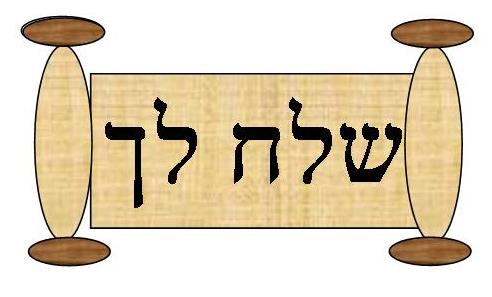In this week’s Torah portion Moses sends 12 spies to go from their encampment in the desert and observe the land of Israel. Moses instructs the spies to “see what the land is like” (Bamidbar 13:18) Their task was to see the land, see for themselves and report back that it is a land flowing with milk and honey. Yet, ten of the 12 spies failed. They returned with a negative report.
“And there we saw the giants…and we were in our own eyes as grasshoppers, and so were we in their eyes.” (Bamidbar 13:33) They had no real way of knowing how they were perceived in the eyes of the ‘natives.’ – Yet, in their own view they were unfit and inferior – and therefore they assumed that that was the reality. They looked for the negative and found the negative. We don’t see things the way they are, rather, we perceive things the way we are.
The ten spies were pessimistic about entering the land of Israel. They had other motives, wishing to remain spiritually sheltered in the desert and led by Moses and therefore went in with a negative and self-defeating attitude.
In contrast, the other two spies, Yehoshua and Kalev, were optimistic about entering Israel, and so they observed the exact same situation but saw something completely different. “We should go up and take possession of the land, for we can certainly do it.” (13:30) This was their response to the scouting mission. Rav DovBer Pison comments: ‘This week’s energy is the power of the scouts’ , the mentors, in our lives. These are the people we depend on to give us advice and lead us in the right direction. We must choose these people in our lives carefully, for their biases will affect the advice they give us and the path we ultimately take.If you already have such people in your life, be sure that they are the right people to turn to and the advice they give you is unbiased. Choose advisors, experts in whatever area you seek expertise and advice. But be sure to choose a person with your best interests in their hearts, with open and optimistic attitude and you will be led in the right direction.
In this week’s Parshah too, the spies discovered that wherever they went, a plague struck down the Cana’anim and they were dying in large numbers. They concluded that the air of the land of Israel was unhealthy and prone to breeding plagues. They failed to see (or perhaps they did not want to see), that the Divine Hand was at work, protecting them, preventing their discovery by keeping the Cana’anim too busy to notice them, or at least, to be concerned with their presence. In this way, Hashem reckoned, they would be able to go about spying the land without hindrance. Yet they misconstrued Hashem’s chesed, mistaking His loving care for hatred.
The verse in Devarim (1:20) describes how Israel grumbled that night in their tents, how they declared that it was due to God’s hatred of Israel that He took them out of Egypt, to deliver them into the hands of the Ammorites to destroy them. In fact, Rashi comments, He loved them, and it was they who hated Him! And he goes on to quote a famous folk-saying ‘What a person thinks about his friend, he believes that his friend thinks about him’. Presumably, this saying is based on the verse in “ke’Mayim ha’ponim le’ponim” (Mishlei 27:19).
The Zohar attributes the spies’ prejudice to the fear that, once they entered Israel, the old constitution would end, and a new era would begin, incorporating new leaders, who would replace them. Presumably, that is also what prompted them to renounce Hashem as a hater. In order to misconstrue Hashem’s motives in His interrelationship with us, it is not necessary to be guided by personal prejudices (though it does help). All that is needed is a lack of appreciation a. of Hashem’s extreme goodness; b. of the fact that He loves all his people, and c. the extent of that love.
Prepared by Devorah Abenhaim







